June 23, 2025 | 09:21 GMT +7
June 23, 2025 | 09:21 GMT +7
Hotline: 0913.378.918
June 23, 2025 | 09:21 GMT +7
Hotline: 0913.378.918
Lobster seed businesses must normally carry out customs declaration and quarantine procedures to import lobster seeds through the official route, and bring them to qualified breeding facilities, ensuring the prescribed time.
Tempted by the "lucrative" profits from the business, some subjects have illegally imported, traded, and transported lobster seeds. This poses a risk of dangerous diseases from outside sources, and providing poor-quality lobster seeds leads to farmers suffering heavy losses.
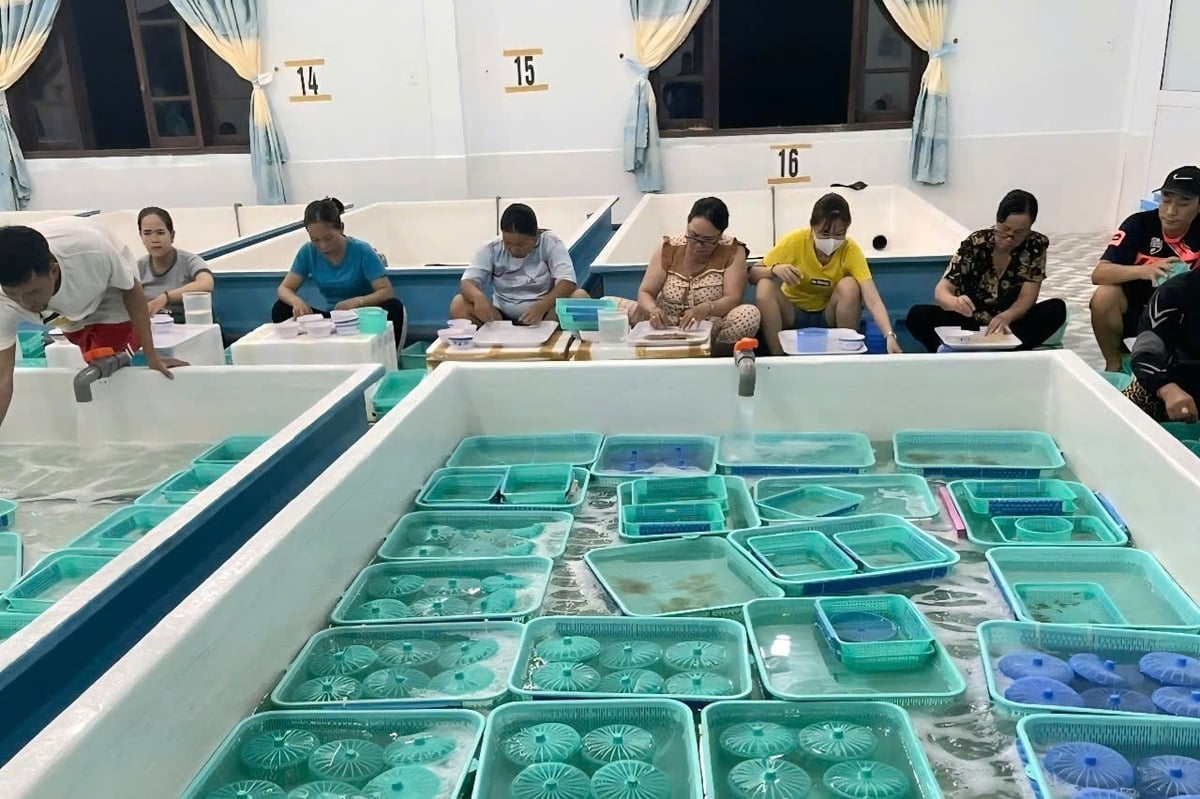
A lobster hatchery in Khanh Hoa province. Photo: KS.
Faced with the situation of law violations in the lobster seed business, the People's Committee of Khanh Hoa province has recently sent a document to specialized departments, branches, functional agencies, and People's Committees of districts, towns, and cities in the province requesting to strengthen the prevention of smuggling, trading, and illegal transportation of lobster seeds.
Considering the functions and tasks of the unit, Deputy Head Tran Thanh Thuy of Khanh Hoa Sub-Department of Livestock Production and Animal Health continues to strengthen the inspection, supervision, and quarantine of aquatic animals, specifically lobster seeds, going in and out of the province. Khanh Hoa Sub-Department of Livestock Production and Animal Health will coordinate with the Sub-Department of Animal Health Region 4 to closely monitor imported lobster seed batches after quarantine.
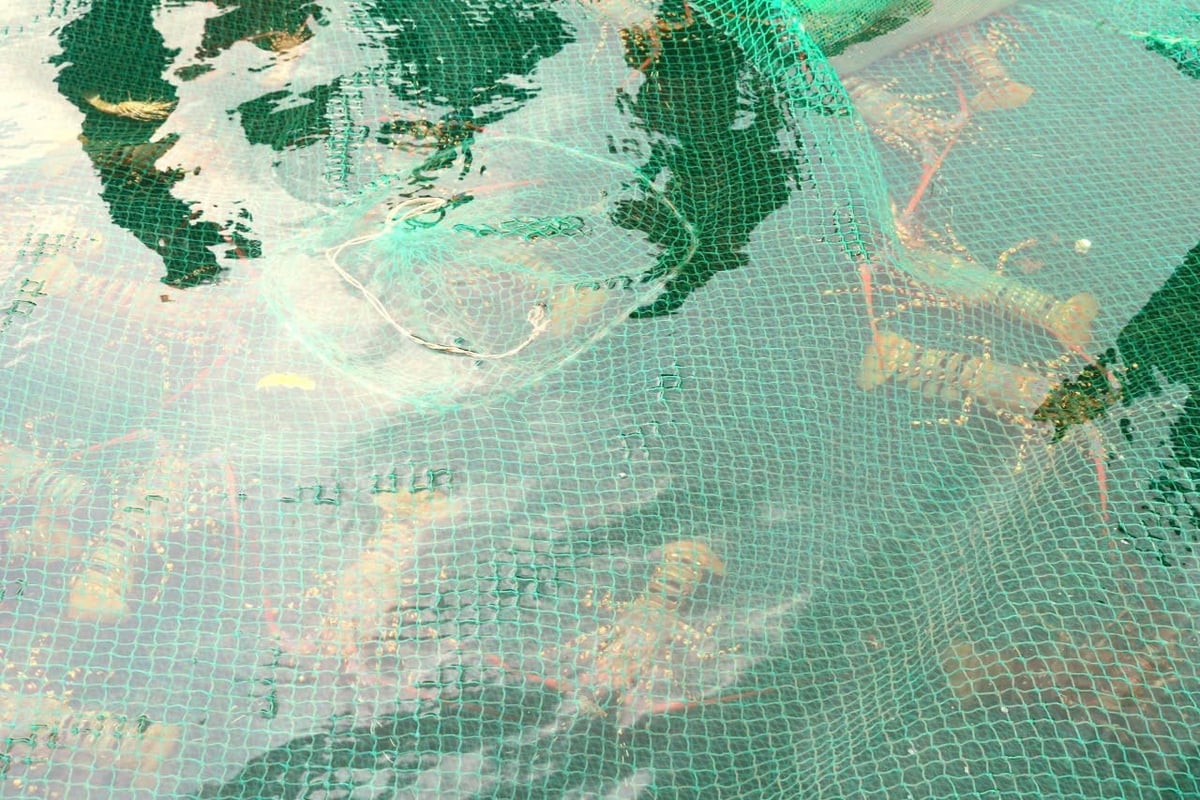
Tropical rock lobster farming in Van Phong bay, Khanh Hoa province. Photo: KS.
The Sub-Department will develop a plan to manage lobster breeding and storage facilities in the province. Another approach is to strengthen information dissemination and raise awareness among farmers about the quality of lobster seeds and the legality of lobster seed batches (origin, quarantine certificate, etc.).
It also focuses on coordination with relevant agencies, units, and localities in inspecting and handling cases of trading, transporting, and raising lobster seeds of unknown origin and showing signs of violations.
Experiencing a similar situation within the localities, Nguyen Van Hoa, Deputy Head of Phu Yen Sub-Department of Crop Production and Livestock Production, said, “To ensure the supply of quality lobster seeds to farmers, the Sub-Department will continue to coordinate with the Sub-Department of Livestock Production and Animal Health of the provinces to grasp information on the number of aquatic seeds imported to the province for better control and management”.
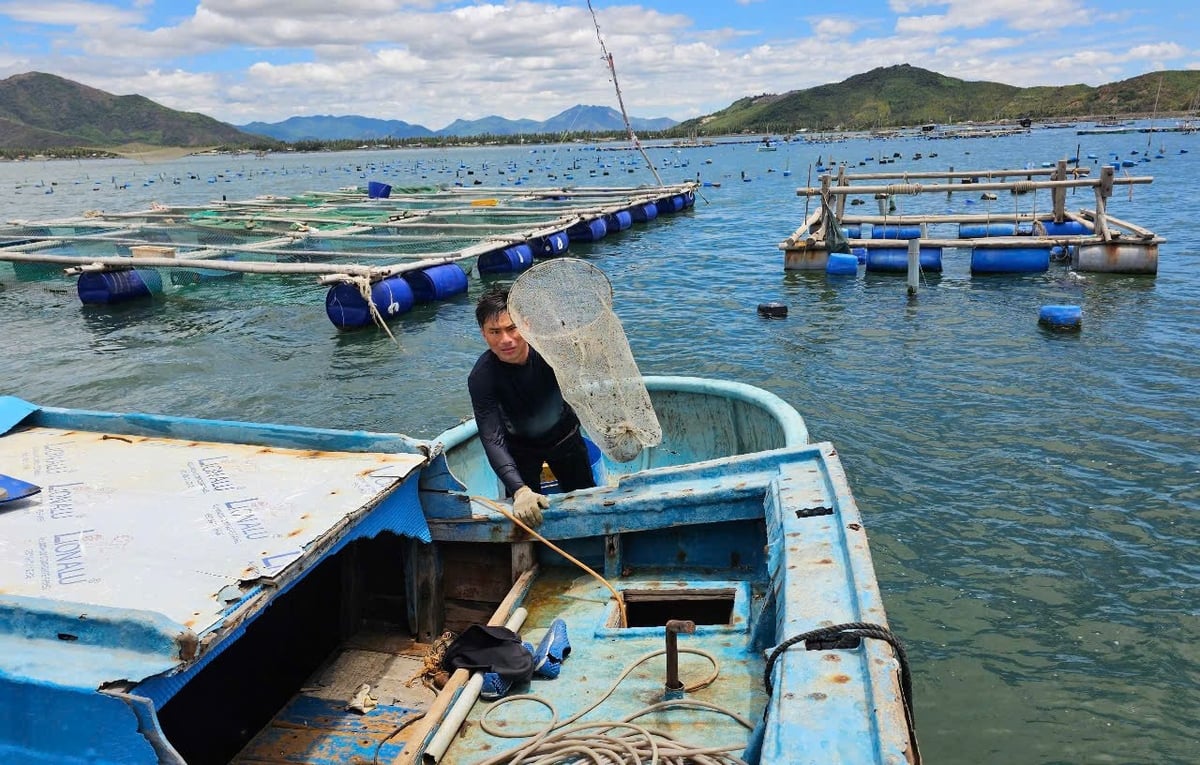
Lobster farmers are vulnerable to losses if they buy poor quality lobster seeds. Photo: KS.
Phu Yen Sub-Department of Crop Production and Livestock Production actively coordinates with functional sectors and localities to strengthen communication, inspection and control of lobster seed circulation in the province to detect and handle cases of transporting and trading lobster seeds of unknown origin.
In addition to strengthening information dissemination, inspection, and control of lobster seeds, the Sub-Departments of Livestock Production and Animal Health of Khanh Hoa and Phu Yen provinces also advise farmers to stay vigilant and choose lobster seeds with clear origin, quarantined and tested to be free of pathogens by regulations.
“When buying, farmers should choose healthy lobster seeds that show good reflexes, natural color and complete appendages. They must not buy poor quality or cheap seeds of unknown origin,” said Nguyen Van Hoa, Deputy Head of Phu Yen Sub-Department of Crop Production and Livestock Production.
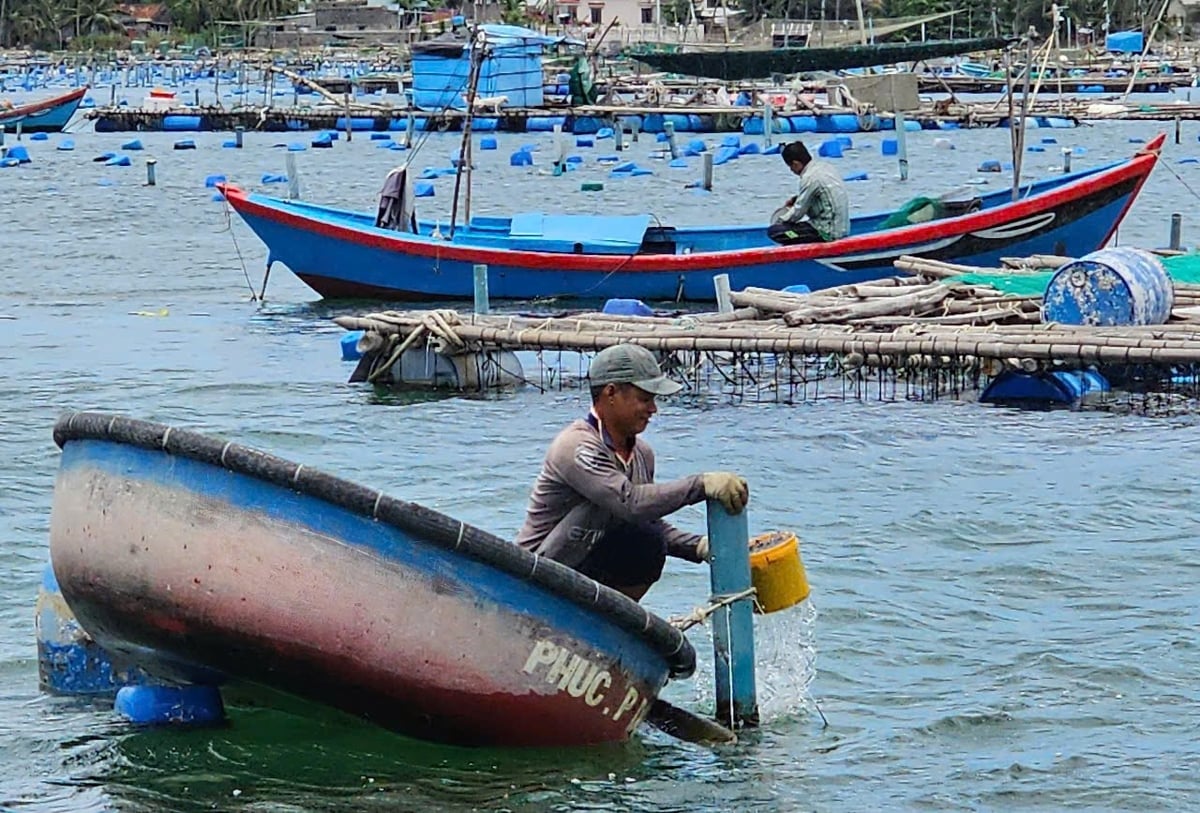
Feeding lobsters through a tube connecting to the cage beneath. Photo: KS.
Based on national technical standards for brackish water shrimp and marine shrimp (lobster) seeds, the seeds must not be infected with milky hemolymph syndrome (MHS) before being released for farming. At communication and training sessions for lobster farmers, Deputy Head Tran Thanh Thuy of Khanh Hoa Sub-Department of Livestock Production and Animal Health recommends that lobster farmers choose to buy breeds from establishments with clear origin, legality, and that have been inspected and tested for dangerous infectious diseases according to regulations.
The People's Committee of Khanh Hoa province recently issued a document directing the strengthening of measures to prevent smuggling, trading, and illegal transportation of lobster seeds. It emphasized the need to promote information dissemination and communication about the risk of dangerous diseases from poor quality lobster seeds.
Local authorities are required to strengthen inspection, supervision and control at airports, seaports, quarantine facilities, and farming facilities to promptly detect and strictly handle cases of smuggling, illegal trading and transportation of lobster seeds in the province. Functional forces must closely coordinate with each other in the process of preventing violations of laws in the fields of fisheries, environment, and veterinary medicine, particularly those related to illegal lobster seed trading activities.
Translated by Samuel Pham
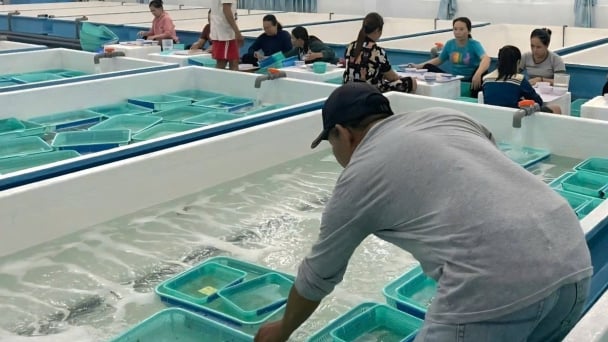
(VAN) Phu Yen and Khanh Hoa recently discovered many batches of lobster seeds of unknown origin. The authorities quickly moved and handled it as per regulations.
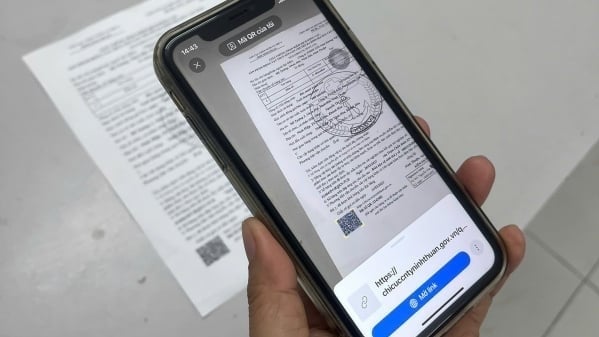
(VAN) Thanks to Ninh Thuans’s digitization of shrimp seed quarantine declarations, the procedures for payment and result reception are simpler and quicker.
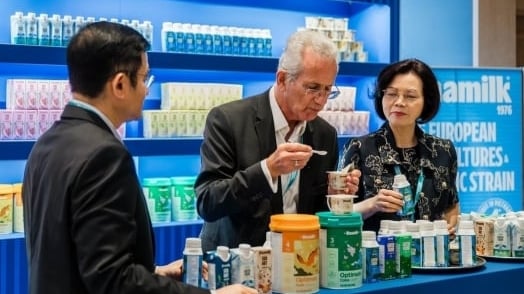
(VAN) In Amsterdam, the Netherlands, the 18th Global Dairy Congress 2025 took place from June 18-19, where Vinamilk won many grand awards.
![Turning wind and rain into action: [11] Ten years before storms, after every harvest](https://t.ex-cdn.com/nongnghiepmoitruong.vn/608w/files/news/2025/06/20/z6704423696987_15fd32ffc26d590d204d520c9dac6786-nongnghiep-140922.jpg)
(VAN) With WeatherPlus, every raindrop and every breeze carries a message. And if we learn to listen, the fields will no longer live in fear of the weather.
![Turning wind and rain into action: [10] Advancing accessible climate services for farmers](https://t.ex-cdn.com/nongnghiepmoitruong.vn/608w/files/linhnhp/2025/06/20/1911-z6704423696987_15fd32ffc26d590d204d520c9dac6786-nongnghiep-161854.jpg)
(VAN) Not only does it help farmers 'avoid droughts and rains,' the development of agricultural climate services also enhances their ability to proactively adapt to a rapidly changing climate.
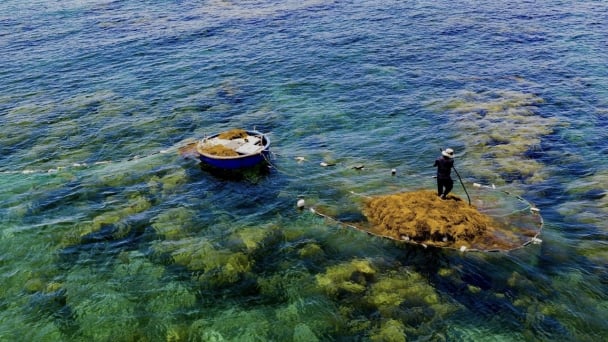
(VAN) With international assistance, the harvesting of sargassum seaweed in Quang Ngai has become increasingly regulated, thereby safeguarding marine life and ensuring the stability of coastal communities' livelihoods.